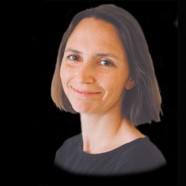
With federal income taxes due this month, how many of us are still poring over the IRS forms, scrambling to locate receipts that will justify qualified deductions, and crossing our fingers that once all the numbers have been crunched, this year will bring us a return, rather than demand a payment?
This annual rigamarole has become old hat for most of us, but every year there are young people encountering income tax season for the very first time. And it’s those newbies that Clinton Taylor, founder and executive director of Your Money Matters Mentoring, wants to reach. His Auburn, Washington-based nonprofit provides financial literacy classes for teens and young adults in economically vulnerable communities. But YMMM doesn’t stop at merely defining what a FICO score is or how the Rule of 72 formula can be used. That final “M” in the nonprofit’s name is a key piece of the services offered: mentoring.
YMMM is based in the south-central Puget Sound region, which includes many towns that began as suburban sprawl spawned by the cities of Seattle and Tacoma, and that still lack big-city services. With significant immigrant and refugee settlement in the area, several of the local school systems serve families who represent over 100 different languages and cultural groups. Black populations displaced from their longtime Seattle neighborhoods by gentrification also have relocated here. So with parents preoccupied with the emotional and economic trauma of being uprooted, kids are often left feeling adrift.
“You’ve got kids out here who are 14, 15, 16, 17 years old and are already taking care of themselves,” Taylor said in a recent interview. “They’re already teen parents, already involved in criminal activities, already homeless and bouncing around from couch to couch.”
He can relate, because he experienced much of that in his own adolescence. He grew up in a single-parent household in northeast Portland in the early 1980s, at a time when gangs were beginning to move out of California and establish a presence up the I-5 corridor. He tried to toe the line by joining the military, but after he got out of the service – “You see people with cars and clothes – and I got into that lifestyle,” Taylor said. “I went headfirst into street life.”
Which soon landed him in prison.
And that was a lifestyle that he quickly realized was not to his liking.
Taylor began taking college correspondence courses while still incarcerated, and after doing his time he finished up his first degree and went on to earn a Master’s degree in human development and family studies from Warner Pacific University in Portland. During some of that time, he was living out of his car. This served as further motivation to establish a firm financial foundation and not look back.
But as it turns out, Taylor did look back – to see younger generations facing similar challenges. So he got involved in helping them out – first as a rec specialist at the local community center, then as a case manager in a drug court diversion program for youth, and later teaching financial literacy in schools.
Five years ago, he formed his own nonprofit, Your Money Matters Mentoring, because he felt that the teaching component of financial literacy was only part of the story. He believed it was important to support students beyond the classroom experience – “someone to walk alongside of them as they try to practice and apply these tools.”
Taylor developed an 8-week, cohort-based curriculum that has been used in open-door alternative schools, tribal schools and, most recently, with students in the juvenile justice system. YMMM has a contract with the Washington State Department of Youth and Families to work inside the state’s 12 juvenile detention facilities. Wherever this curriculum is employed, the point is to engage with groups of students and dive deep into cultural and community influences and their own value systems and personal money triggers before ever beginning to talk about developing financial goals, building assets, and establishing safety nets.
Taylor says it’s all about helping youth develop a sense of self-efficacy around financial matters to avoid getting stuck “on a hamster wheel, in a minimum payment cycle.”
“If you’ve grown up poor, where most of the people you know are poor, there’s this intimidation with money. I like to think we play a part in helping these young people identify what kind of life they want for themselves.”
For those who can’t commit to the eight-week program right now, YMMM is offering a one-day option. Tacoma Community College is hosting YMMM’s Financial Literacy Youth Summit on Saturday, May 13. The free, all-day event will include breakfast and lunch, and will feature a morning of breakout sessions on topics like “Money Culture” and “Money Choices,” while the afternoon will be devoted to a “Reality Fair,” where young people will have a chance to go around to different activities and practice allocating money for groceries, transportation, leisure activities, and more. Taylor says that there will be a $25 stipend for students who attend the event and plenty of “swag,” along with a raffle for big-ticket prizes like laptop computers.
YMMM is always seeking adult volunteers for mentoring roles, facilitating, and back-to-school events. To learn more about these opportunities, visit www.yourmoneymattersmentoring.org/get-involved.
Barbara Lloyd McMichael is a freelance writer living in the Pacific Northwest.









